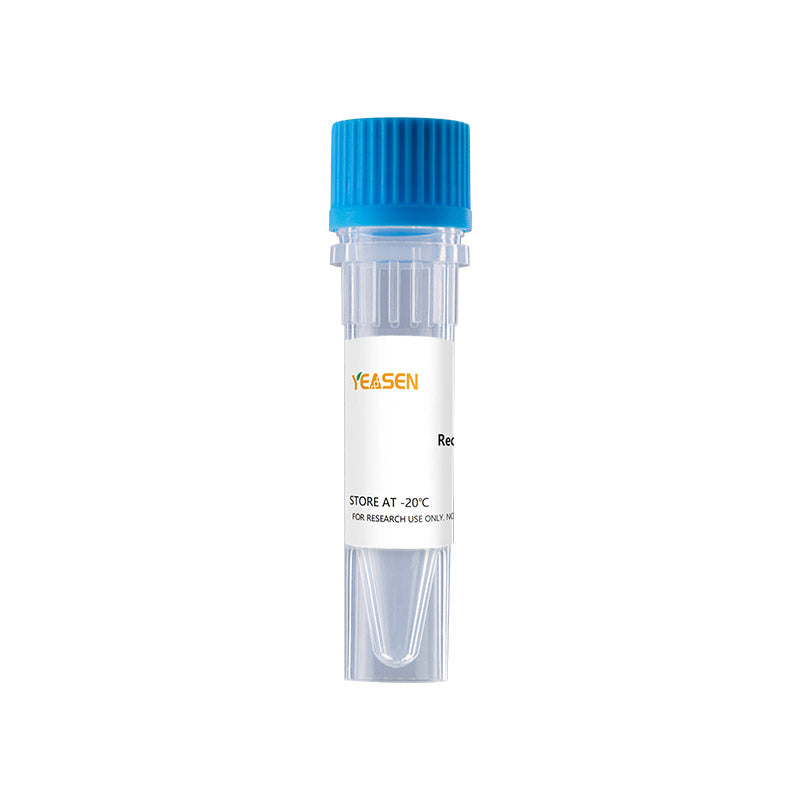Description
Prolactin, also named PRL and lactotrope is a peptide hormone, encoded by the PRL gene. The major form of PRL is a 23 kDa monomeric protein, splice variants of 14, 16, and 22 kDa have been identified. PRL has also been found to be glycosylated, phosphorylated, dimerized, and polymerized. Glycosylation, phosphorylation, dimerization, or polymerization of PRL result in lower activity. Rat prolactin shares 77 % ~ 90 % a.a. sequence identity with human and mouse prolactin. There are mainly three different forms of prolactin in regard to size: little prolactin, big prolactin and big big prolactin. Little prolactin is the predominant form. Although often associated with human milk production, prolactin plays a wide range of other roles in both humans and other verterbrates.
Product Properties
|
Synonyms |
Mammotropin, Luterotropic hormone, Lutetropin |
|
Accession |
|
|
GeneID |
|
|
Source |
E.coli-derived rat Prolactin protein, Leu30-Cys226. |
|
Molecular Weight |
Approximately 22.6 kDa. |
|
AA Sequence |
LPVCSGGDCQ TPLPELFDRV VMLSHYIHTL YTDMFIEFDK QYVQDREFIA KAINDCPTSS LATPEDKEQA QKVPPEVLLN LILSLVHSWN DPLFQLITGL GGIHEAPDAI ISRAKEIEEQ NKRLLEGIEK IISQAYPEAK GNEIYLVWSQ LPSLQGVDEE SKDLAFYNNI RCLRRDSHKV DNYLKFLRCQ IVHKNNC |
|
Tag |
None |
|
Physical Appearance |
Sterile Filtered White lyophilized (freeze-dried) powder. |
|
Purity |
>98% by SDS-PAGE and HPLC analyses. |
|
Biological Activity |
The ED50 as determined by a cell proliferation assay using rat Nb2-11 cells is less than 1.0 ng/mL, corresponding to a specific activity of > 1.0 × 106 IU/mg. Fully biologically active when compared to standard. |
|
Endotoxin |
< 0.1 EU per 1μg of the protein by the LAL method. |
|
Formulation |
Lyophilized from a 0.2 μm filtered concentrated solution in PBS, pH 7.4. |
|
Reconstitution |
We recommend that this vial be briefly centrifuged prior to opening to bring the contents to the bottom. Reconstitute in sterile distilled water or aqueous buffer containing 0.1% BSA to a concentration of 0.1-1.0 mg/mL. Stock solutions should be apportioned into working aliquots and stored at ≤ -20℃. Further dilutions should be made in appropriate buffered solutions. |
Shipping and Storage
The products are shipped with ice pack and can be stored at -20℃ to -80℃ for 1 year.
Recommend to aliquot the protein into smaller quantities when first used and avoid repeated freeze-thaw cycles.
Cautions
1. Avoid repeated freeze-thaw cycles.
2. For your safety and health, please wear lab coats and disposable gloves for operation.
3. For research use only!
Payment & Security
Your payment information is processed securely. We do not store credit card details nor have access to your credit card information.
Inquiry
You may also like
FAQ
The product is for research purposes only and is not intended for therapeutic or diagnostic use in humans or animals. Products and content are protected by patents, trademarks, and copyrights owned by Yeasen Biotechnology. Trademark symbols indicate the country of origin, not necessarily registration in all regions.
Certain applications may require additional third-party intellectual property rights.
Yeasen is dedicated to ethical science, believing our research should address critical questions while ensuring safety and ethical standards.

